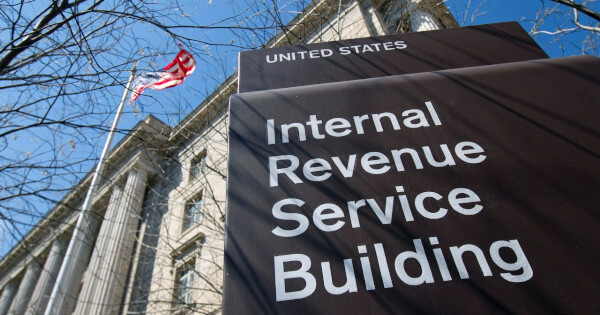
The United States Internal Revenue Service (IRS) has recently announced a significant change concerning the reporting of cryptocurrency transactions by US businesses. Initially, as part of the Infrastructure Investment and Jobs Act passed in November 2021, businesses were required to report any cryptocurrency transaction over $10,000 to the IRS, much like cash transactions. However, this requirement has been temporarily put on hold until a comprehensive regulatory framework is established.
This development, announced on January 16, 2024, indicates a step back from the IRS in enforcing the new rules, which had come into effect on January 1, 2024. The decision was influenced by a revision of the Infrastructure Investment and Jobs Act by the U.S. Treasury Department and the IRS. The law, as it stood, mandated businesses to report receiving cash or digital assets worth more than $10,000 within 15 days of the transaction. However, the IRS clarified that digital assets do not need to be included in this requirement for now.
The initial rules had received significant criticism from the cryptocurrency community. Many users and stakeholders in the crypto industry found the rules challenging to comply with, especially given the lack of clear guidance from the IRS. Coin Center, a cryptocurrency advocacy group, had previously filed a lawsuit against the Treasury Department, challenging the constitutionality of the law. The legal proceedings are still ongoing, but the law remains enforceable.
The IRS and the Treasury intend to issue proposed regulations concerning digital asset reporting. This will also involve a public commenting period, allowing stakeholders to voice their opinions and concerns. Digital asset advocates like the Blockchain Association have welcomed this decision, seeing it as a positive step forward given the complexities associated with reporting cryptocurrency transactions.
Despite the temporary relief, the requirement to report large cryptocurrency transactions remains a legal obligation. The IRS has not provided specific guidance on certain practical aspects, like how to report transactions from decentralized exchanges or block rewards exceeding $10,000. The law’s criteria for evaluating the $10,000 threshold in terms of cryptocurrency value are also unclear. The IRS’s pause in enforcing this requirement provides a window for the cryptocurrency community and regulators to work towards more practical and clear guidelines.
This situation exemplifies the ongoing challenges in regulating the rapidly evolving cryptocurrency market. As governments and regulatory bodies attempt to integrate digital assets into the existing financial and legal frameworks, they face the complex task of balancing regulatory requirements with the unique characteristics of cryptocurrencies. This delay by the IRS might be seen as an acknowledgment of these challenges and a willingness to engage with the crypto community to develop more effective regulations.
Image source: Shutterstock

